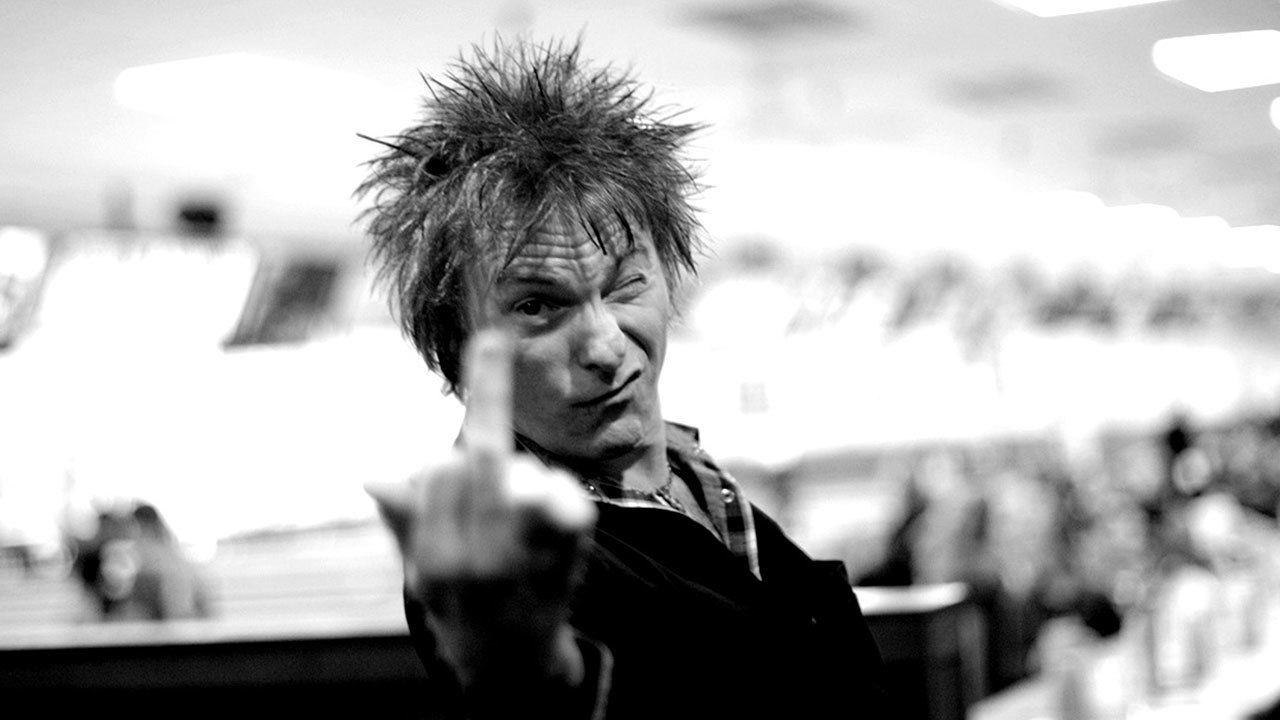“Read it? Idon’t have to – I lived it!” That’s Tommy Stinson’s answer when asked if he’s familiar with Trouble Boys, Bob Mehr’s biography of Stinson’s former band The Replacements. It turns out he hasn’t. One day someone will write Stinson’s biography, and his time as bass player with The Mats (as The Replacements are known by their fans) will be only part of it. He also spent nearly 17 years with Guns N’ Roses, and has accumulated an extensive CV of side projects, including Bash & Pop, who released their debut album in 1994. Twenty-three years later, they’re back with a second.
Why another Bash & Pop album and not a Tommy Stinson solo album?
Making a record is time-consuming. It’s hard to capture lightning in a bottle, and my solo records have tended to be piecemealed together, so between shows on The Replacements’ reunion tour I’d get friends to come up to my house and try to capture that band vibe. Then I played the songs for various derelicts I know, and some of them said it sounded like Bash & Pop. So I thought why not? After all, I own the name.
There’s a lot of The Replacements’ DNA in Bash & Pop. The same is true of Chris Mars’s solo stuff. How does that work?
All of us in The Replacements grew up listening to and playing that stuff, so it’s always going to be there, no matter what we do. Even if Paul [Westerberg, guitarist vocalist] decided to put out a jazz record, you’re still going to hear Nightclub Jitters in there. Some things are intrinsic. It’s a collective bloodline. I’d be a fool to say that Paul didn’t influence me, but at the end of the day what matters is that I’m out here still doing what I love to do.
The new album also has that Replacements thing of being as melancholy as it is euphoric.
Any great rock’n’roll album will have peaks and valleys, and that’s really important to making a record. A hard-core album can be a little bit taxing on one’s ears, and it’s really important that you can sit through a record and not get pummelled by the sameness of it all.
Is Bash & Pop your day job now?
It is until I find a better one.
Are you looking?
Always.
What have you learned from being in bands with Paul Westerberg and Axl Rose?
I learned more from being in a band with Axl Rose in many ways. Guns N’ Roses was much more of a collective, collaborative experience. Where Paul was a single-minded songwriter, Axl is more of a producer type and likes to get everyone involved. I think it comes from the fact that back in the day, when the original band were hacking out songs, everyone wrote, so they all worked on each other’s songs. Watching this go down was a huge learning experience.
You played on Guns N’ Roses’ Chinese Democracy. How do you feel about that album now?
There’s some wildly experimental stuff on that album, which all comes from the fact that Axl doesn’t want to be pigeonholed. The thing people don’t appreciate about Axl is that there’s a whole lot more depth to him than just sex, drugs and rock’n’roll. Ultimately it’s all in the title. It’s Chinese democracy.
Anything Could Happen is out now on Fat Possum Records.

